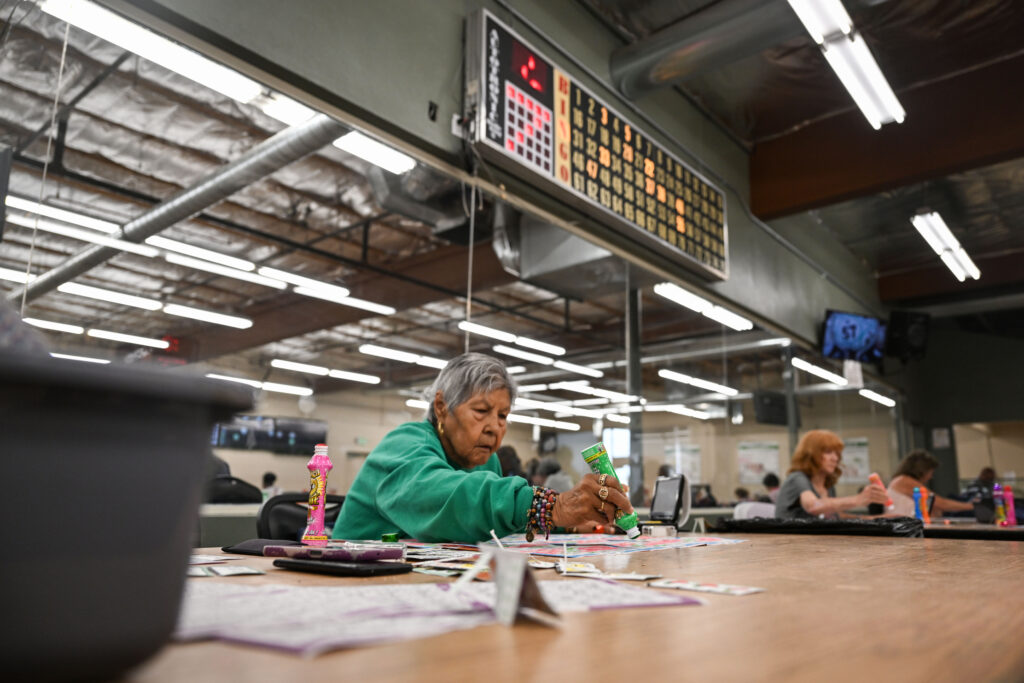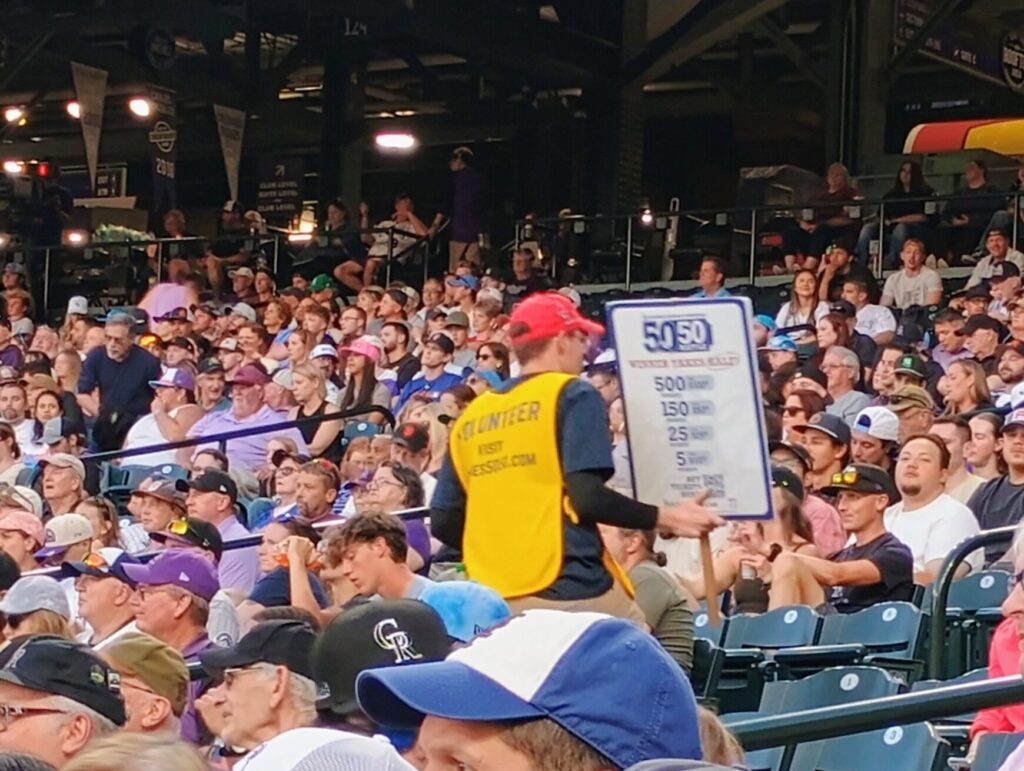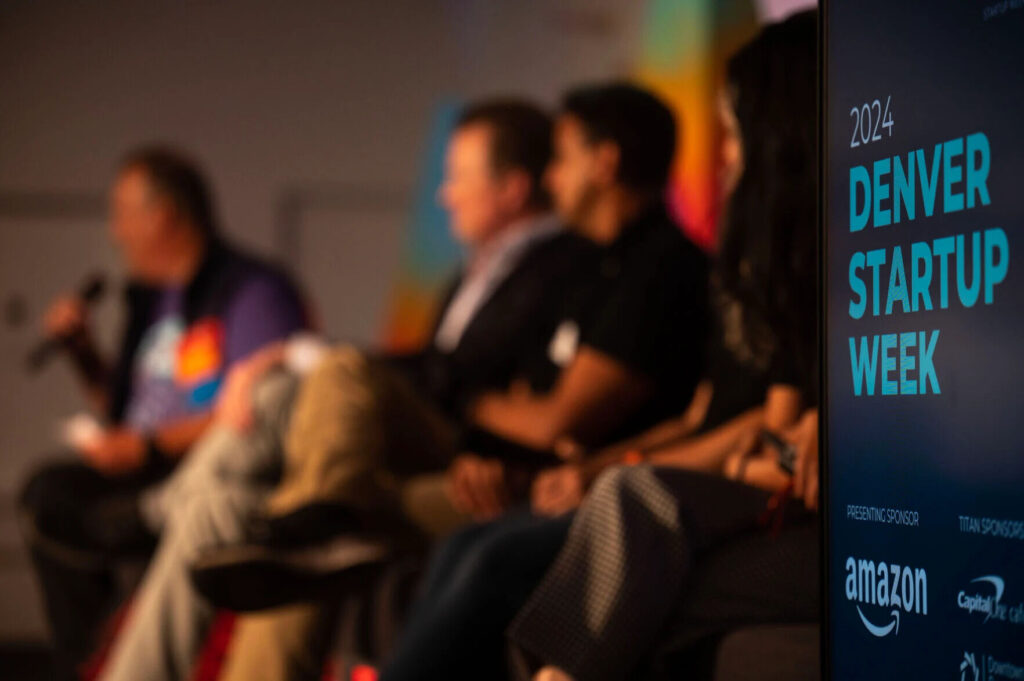Colorado charities pay bingo volunteers despite law prohibiting it
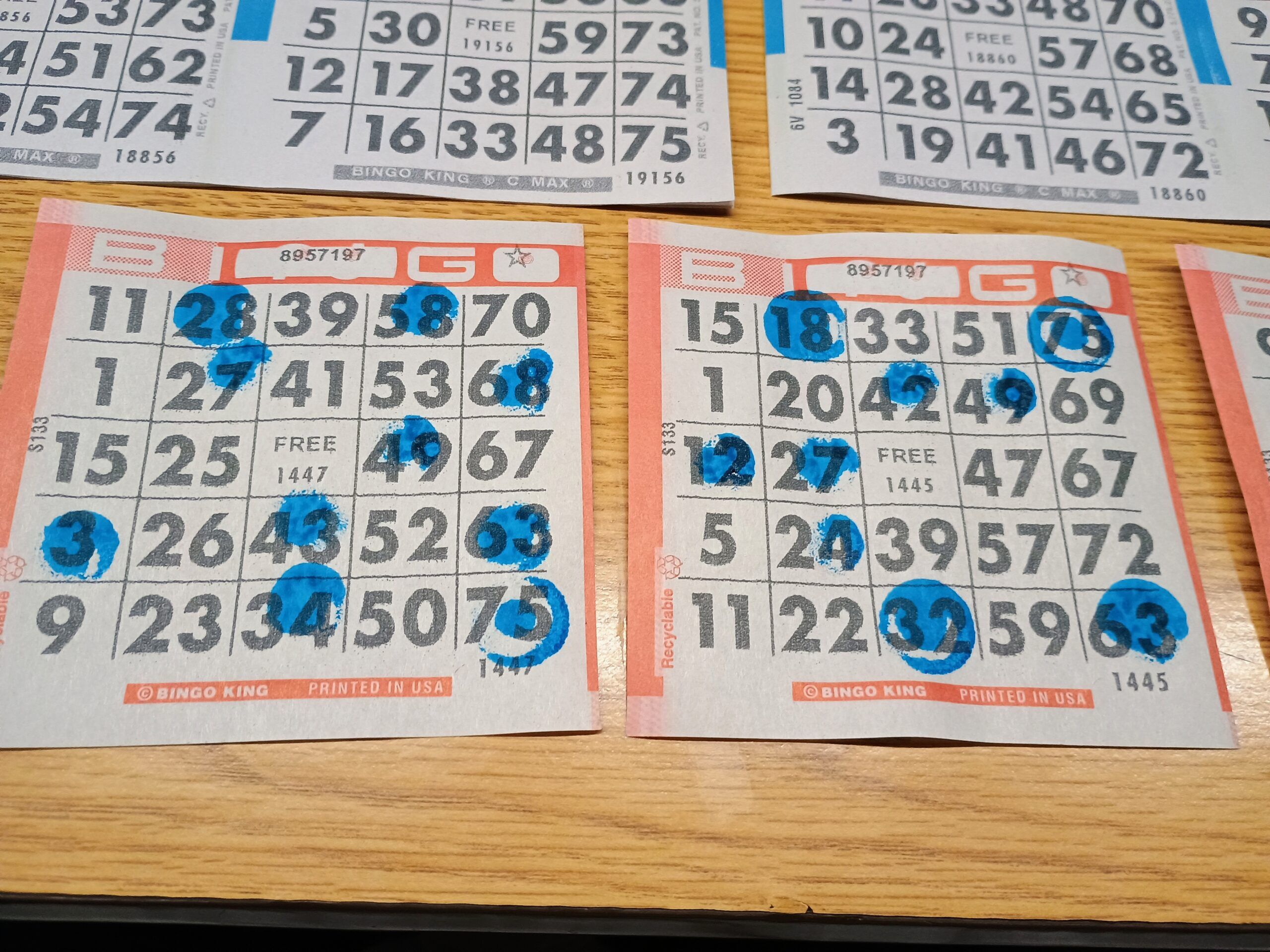
Colorado’s charitable gaming laws succinctly prohibit state nonprofits from paying or remunerating volunteers who work the bingo and raffle games they host.
That doesn’t seem to stop them.
The Denver Gazette identified at least three organizations – all of them related to youth sports – that funnel charitable gaming proceeds to the financial benefit of the parents or family members who volunteer for them.

“Technically people have been paid, with volunteers getting credits,” said Donivon Glassburn, former chairman of the Colorado Bingo-Raffle Advisory Board and bingo hall owner. “It was indirectly paid.”
Put simply, Glassburn said the groups typically credit parents who work the bingo games with an amount of money equivalent to the hours they volunteered. Then the dollars were doled out as needed – but only for the children whose parents had worked.
Work a three-hour bingo night and the parent is given credit for that amount of money, such as $90 at $30 an hour, in a ledger or an account. Depending on the organization, the parent can then use that money for expenses related to their child, such as equipment, tournament fees or membership dues.
One group, the Columbine-Lakewood Soccer Association, which is better known as Colorado Rush Soccer, allows parents to be reimbursed directly if they provide a receipt, according to John Carroll, its president.
“The players in our club, their parents work bingo and they get a certain amount that they make,” Carroll told The Denver Gazette. “And they use that money for their team fees, registration fees and sports-related equipment. They have an amount in their bingo account and we have a ledger for whomever works and how much credit they have.”
Funds are allocated to whatever expense a parent decides and it would be moved into a team’s account for use, he said.
“Parents can put it into a team travel account, where team managers book the flights and give the credit to the player,” he said. “Travel can cost a lot for a family.”
The executive director of another soccer group, Aaron Nagel at the Colorado Fusion Soccer Club in Aurora, which is better known as the Colorado Rapids Youth Soccer Club, was so proud of how the group doles out the financial incentives earned at bingo that he boasted about an employee’s volunteerism.
“We had an employee who worked for us and she never paid a cent for her kids to play soccer,” Nagel said of the woman. “All three of her kids played and she didn’t pay a cent because of all the bingo work she did.”
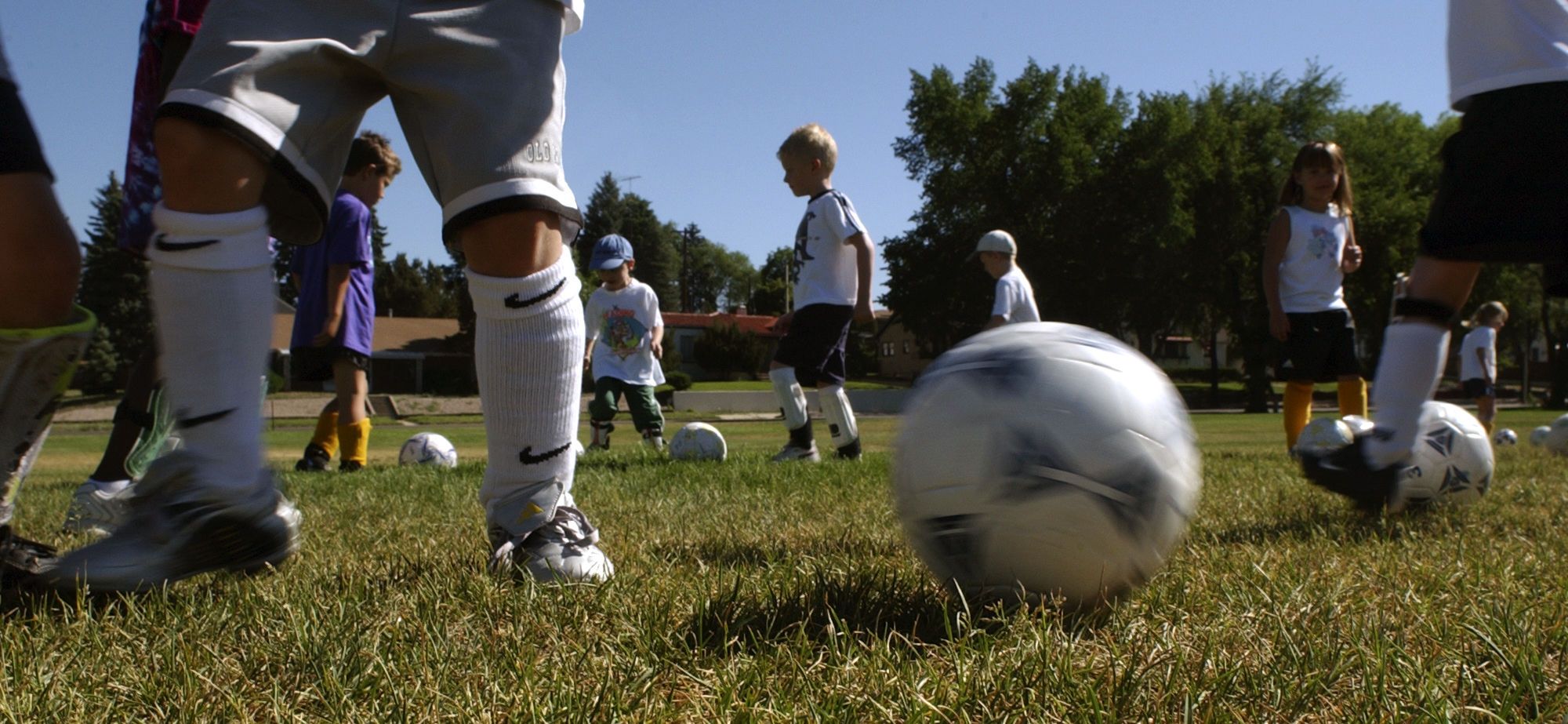
The Colorado Rush group also allows for funds to be used for non-soccer-related expenses as well, according to copies of financial reports it files with the Colorado Secretary of State each quarter.
In early 2025, the group paid nearly $5,000 to Sallie Mae and Aidvantage to cover “youth education,” records show. The two organizations handle federal student loans.
It also paid more than $17,000 for “education” to several universities including the University of North Carolina, the University of Oklahoma, Colorado State University, Western Colorado University and the University of Colorado, records show.
Nagel – with an annual salary of $193,000 from the soccer groups – was also particularly proud of his own mother, whom he said worked bingo games so his children wouldn’t have to pay their membership costs.
“That’s a nice story,” he said.
Carroll said those dollars are parents’ bingo credits used to cover tuition expenses for their child.
“If you were a bingo manager, you didn’t get paid any extra, you couldn’t get paid,” said Tim Schulz, the former president of Columbine-Lakewood Colorado Soccer Club who formed the group in 2003. “There were certain ways you could distribute the money to the families. Give the money to the team and it would distribute to the families that had worked.”
Colorado bingo regulators have cited at least one organization in the past year for wrongly paying its volunteers through similar means, according to copies of those records obtained by The Gazette through an open records request.
The National Gymnastics Village Girls Booster Club in Colorado Springs was fined $5,000 in January following an investigation into a pair of complaints over illegal payments to volunteers.
The group is tied to Stars Gymnastics and, according to the Colorado Secretary of State’s office, NGV members were told they needed to volunteer for bingo nights in order to be reimbursed for the gymnastics fees they paid.
Additionally, members who did not volunteer were ineligible to share in the distribution of additional year-end surpluses that came from bingo.
NGV tax records for the 2024 fiscal year show it brought in more than $430,000 in bingo revenue that year, $78,300 of that in ultimate income.
The fine was $100 for each of the 50 bingo occasions the group ran from July 2023 to December 2023, records show.
Recognizing that getting volunteers to work bingo nights is a difficult task, the bingo industry twice has tried to get voters to approve payments to workers – even just at minimum wage – only to lose at the polls both times.
“Nowadays people would rather just write a check and be left alone than to volunteer,” said Rich Lemon, the president of the Colorado Bingo Association and owner of Rocky Mountain Bingo Supply. “Getting folks to step up is always a chore for some groups and many just stop.”
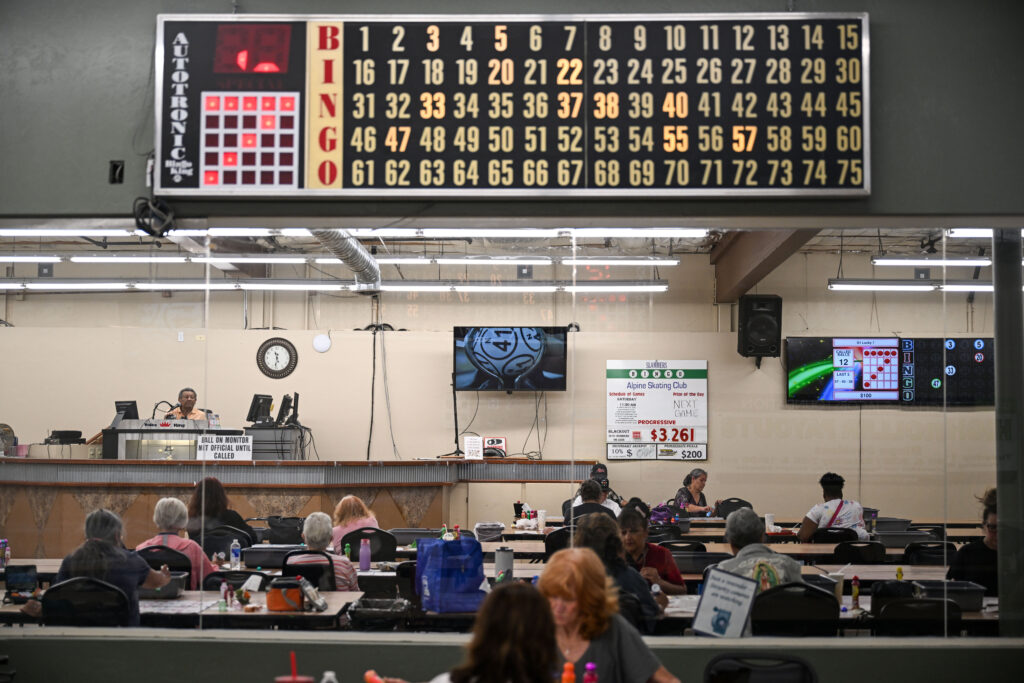
(Stephen Swofford, Denver Gazette)








